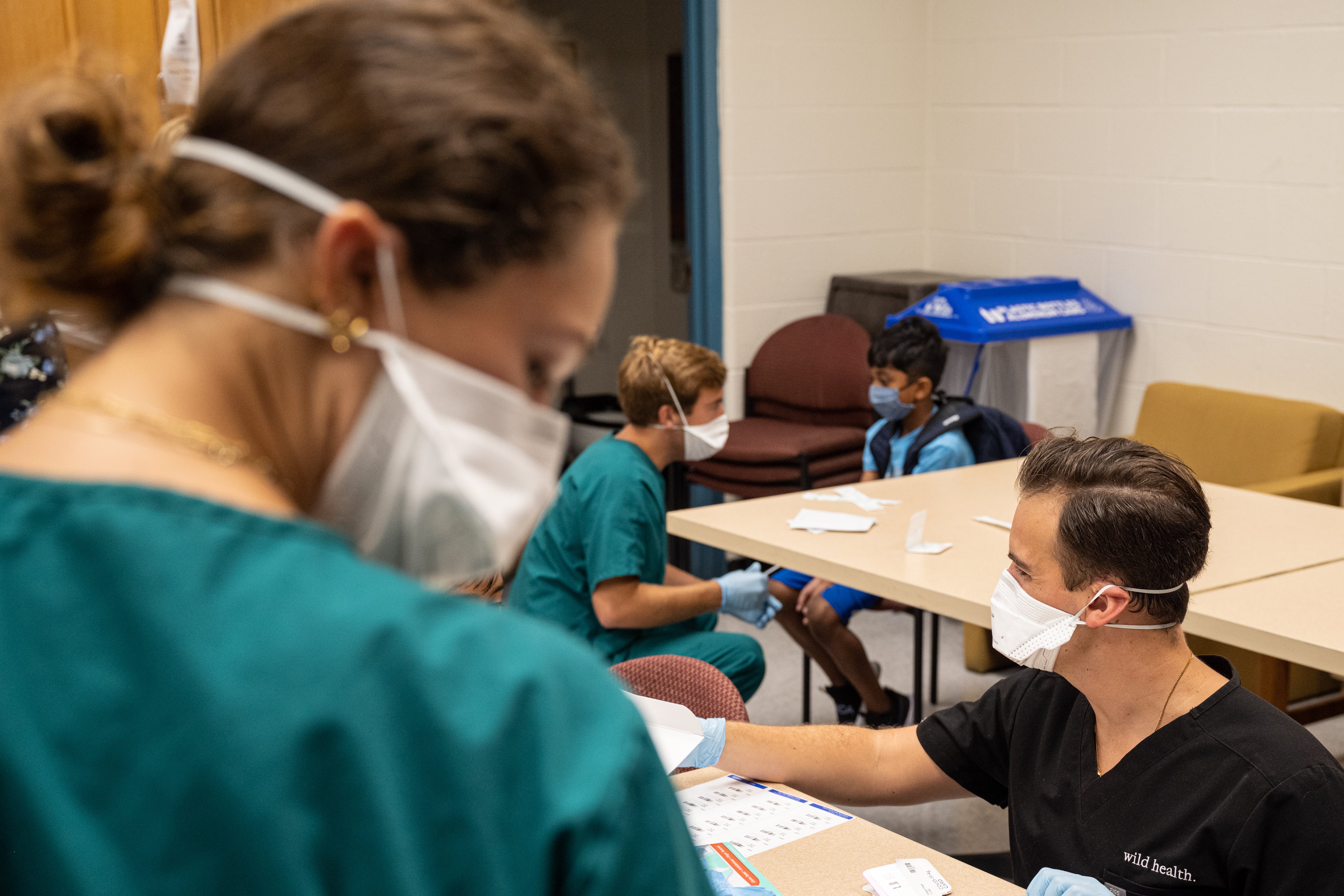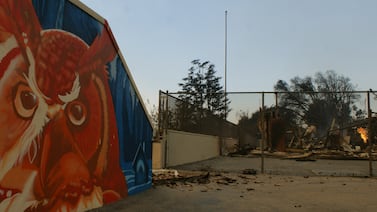Students in Shelby County Schools returned to classrooms Monday after winter break as district officials prepared to expand in-school COVID testing amid an omicron surge.
Beginning Jan. 17, SCS will test participating students and staff weekly — ramping up from the testing offered every two weeks in collaboration with Poplar health system since the school year started in August.
While the district has been planning to ramp up student and staff testing for months to limit a possible post-holiday season COVID spike, the expansion later this month is coming at a more opportune time than the district could’ve imagined, said John Barker, deputy superintendent for strategic operations and finance.
The Shelby County Health Department on Sunday reported 3,394 COVID cases — the highest number of new cases since the start of the pandemic. And as of Monday, the county recorded 19,166 active cases, 3,647 of which are among children under the age of 18.
“We’re just really, really fortunate to have the money and the personnel and the commitment of everybody who’s participating [in the testing program] to make sure we’re using one more piece in our portfolio to try to stop the spread, especially at this particular time of year,” Barker said Monday.
The ramped-up testing in Shelby County Schools is just one piece of the district’s strategy as families, school staff, and administrators brace for yet another challenging month of pandemic-era school, Barker said.
In a New Year’s Day letter to district families and staff, Superintendent Joris Ray emphasized that the district’s safety protocols — like masking and social distancing when possible — remain in place. He noted state Department of Health data shows that Memphis schools and Metro Nashville Public Schools — districts that have kept mask mandates in place and encouraged vaccines — have had the lowest cumulative case rate among children.
“Masks and vaccinations work and have been proven to help slow the spread of this virus. SCS has led the way for safety through this unprecedented time,” he wrote. “Let’s stay the course.”
In other areas of the U.S., the sharp rise in cases led some school districts, including those in Detroit and Newark, to take learning online and delay a physical return to classrooms until later this week or month.
Staffing shortages, also fueled by rising COVID cases, have also caused schools to shutter. School districts in Wisconsin and Iowa canceled classes on Monday because of a dearth of bus drivers.
And at a Sunday school board meeting in the nearby Collierville, Superintendent Gary Lilly cited staffing shortages as the reason the district should enact a mask mandate. As of Sunday, 89 teachers and staff in the Memphis suburb had either tested positive or were exposed to the virus, the Commercial Appeal reported, and the district only has 60 substitute teachers.
Beth Brown, president of the state’s largest teacher organization, called it “a very stressful beginning to a new semester.”
“We’re being hit with a much more transmissible omicron variant at a time when educators are exhausted and personnel resources are low. And our General Assembly has passed legislation that restricts mask mandates for most school districts,” said Brown, with the Tennessee Education Association.
Brown said she expects another wave of staffing shortages will force district leaders across Tennessee to request state waivers for some schools to shift temporarily to remote learning, similar to the beginning of the school year when the delta variant was surging.
The state waivers, which must be approved by Education Commissioner Penny Schwinn, allow remote instruction for seven days for individual classrooms or schools — not necessarily entire districts unless administrators can justify that move.
Although Shelby County Schools has been able to keep its mask requirement after a federal judge ruled it a “reasonable accommodation” to ensure students with disabilities have equal access to education, Barker hopes more parents, guardians and staff members will participate in the district’s testing program.
With more than 25,000 parents and guardians authorizing the district to perform testing on students as of Monday, and about 10% of the district’s student and staff population is tested every week, Shelby County Schools has luckily been able to maintain adequate staffing so far this school year, Barker said.
But Barker encouraged more to join the district’s “preventative” measure. Because the tests are only administered to asymptomatic students and staff, the program has allowed the district to detect cases they wouldn’t have otherwise, limiting spread in school buildings and resulting absences.
“It’s proactive rather than reactive,” Barker said. “This is another step in our mitigation strategies — we have masking, we’ve got vaccinations, we’ve got social distancing. And we also need regular testing.”
The nasal swab test will be available at all Memphis schools, as well as at the Board of Education office at 160 South Hollywood St. in Memphis.
Parents and guardians can sign their children up to be tested on the district website, or by downloading a consent form and returning it to their school.
Marta W. Aldrich contributed to this report.







